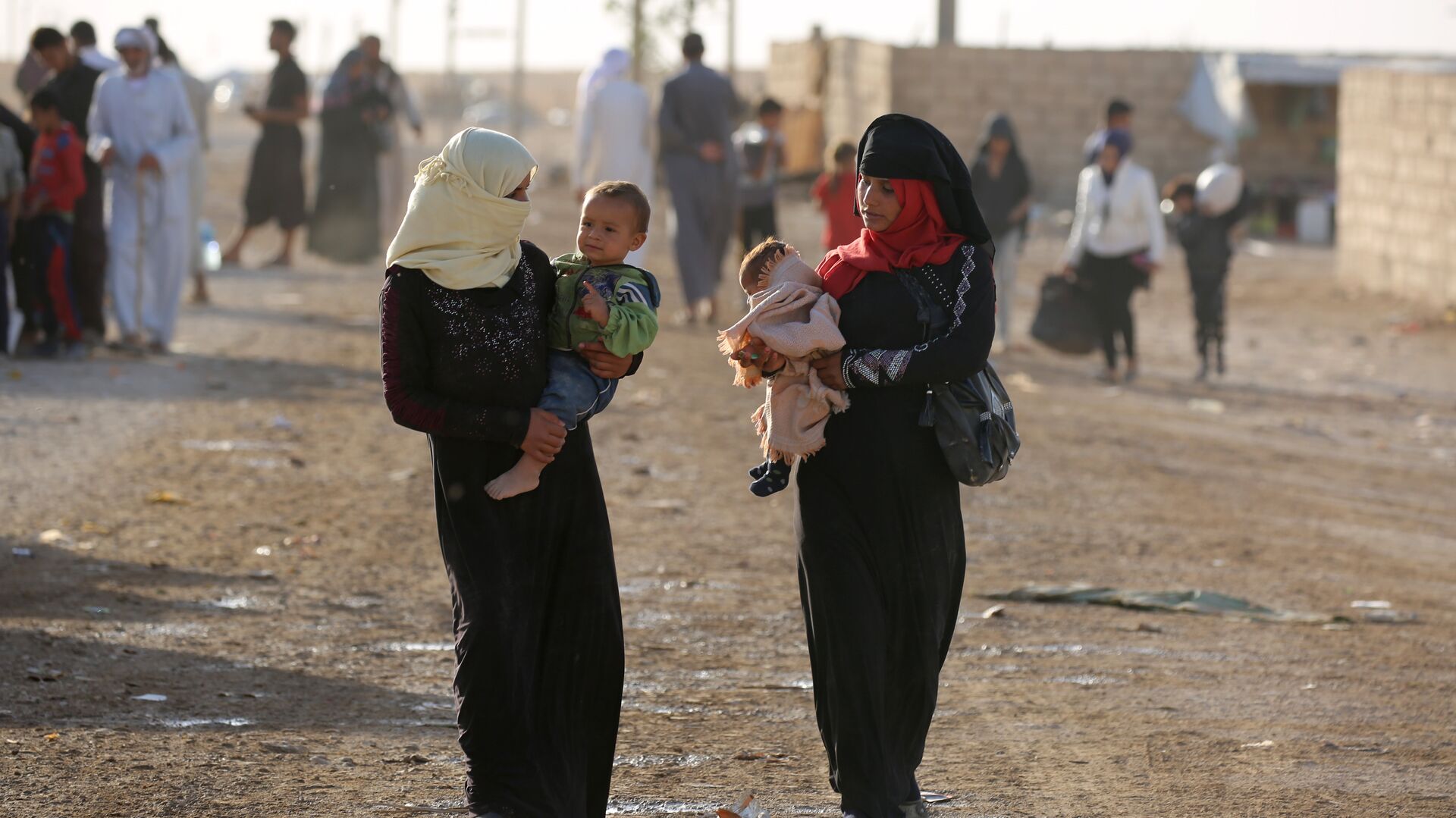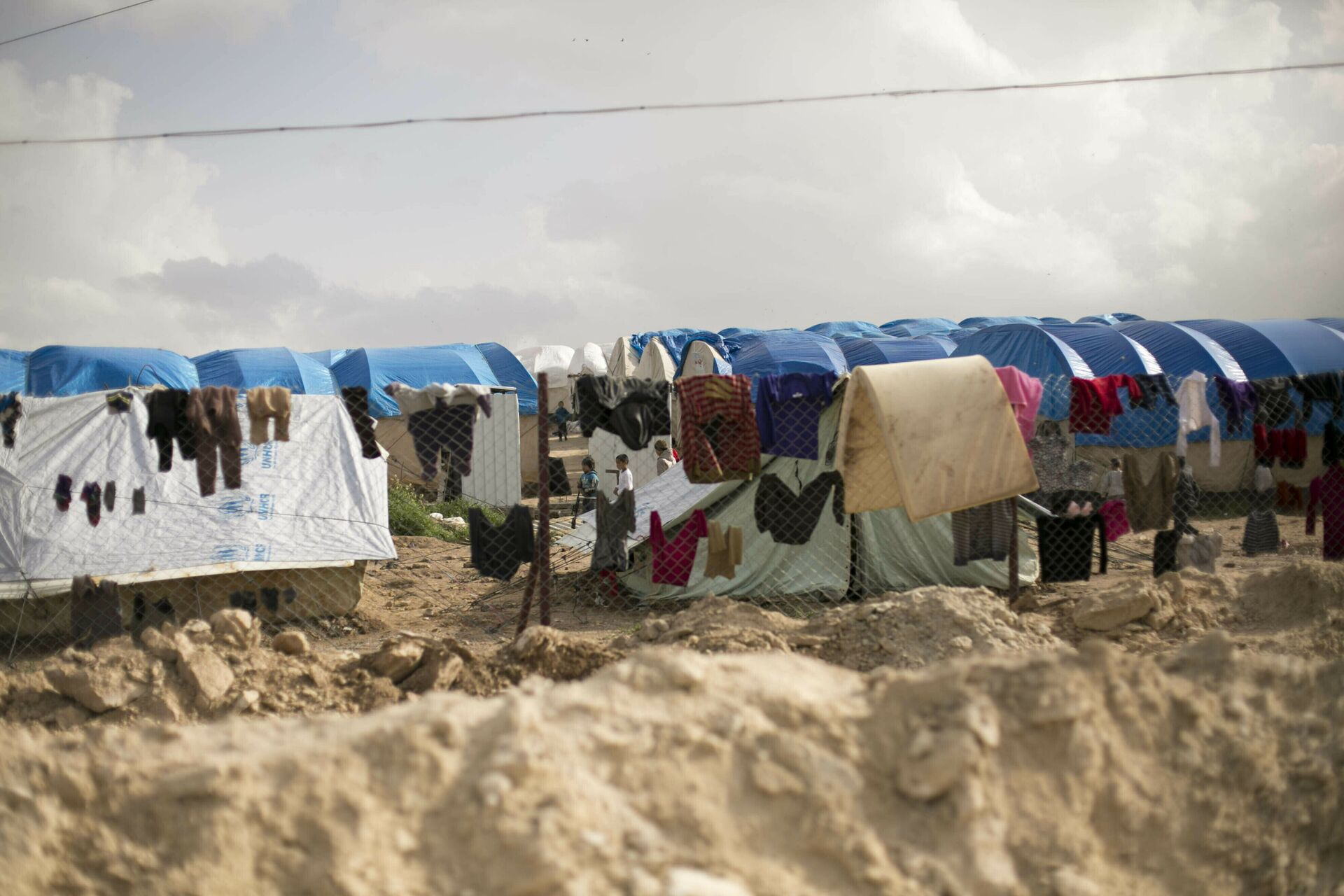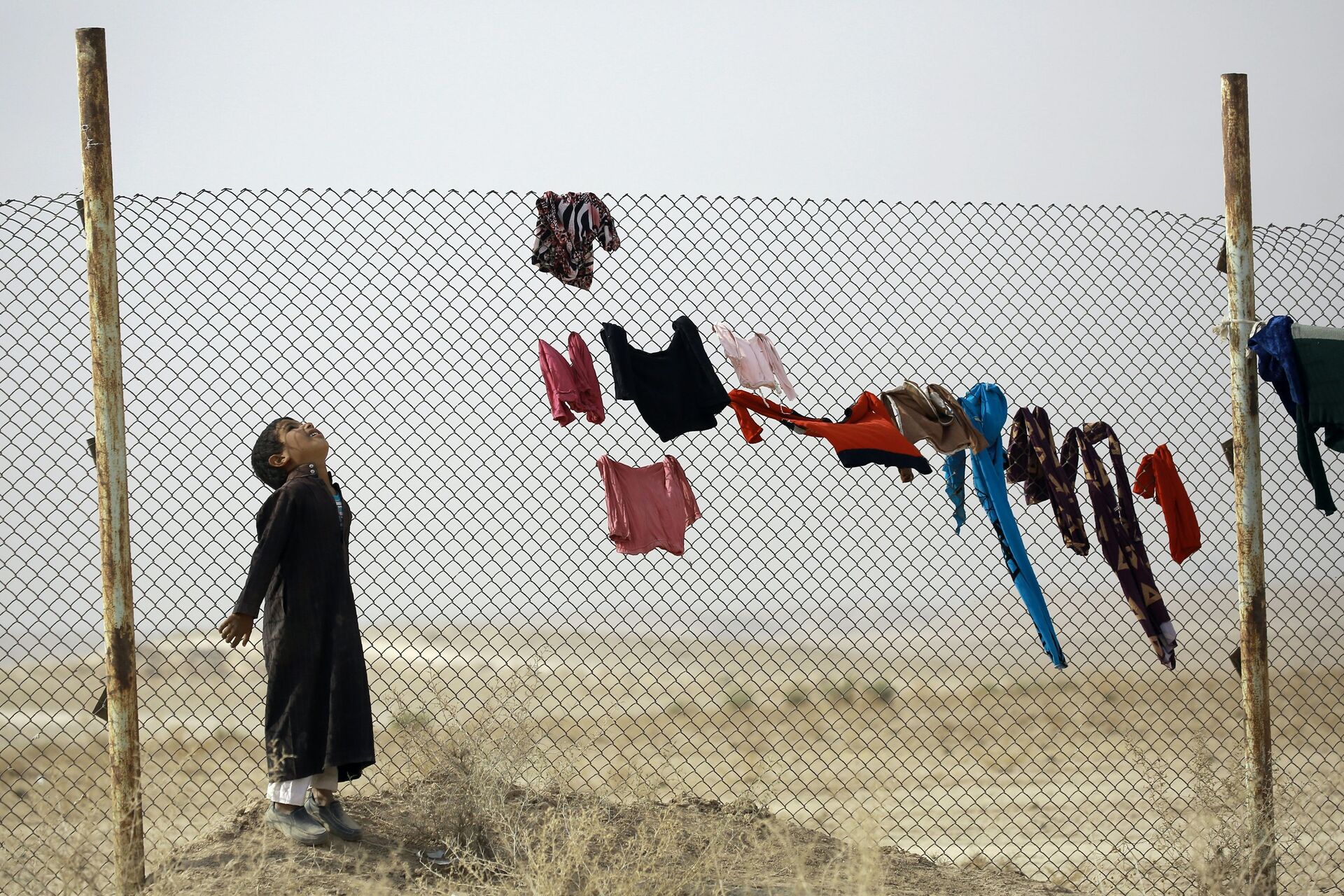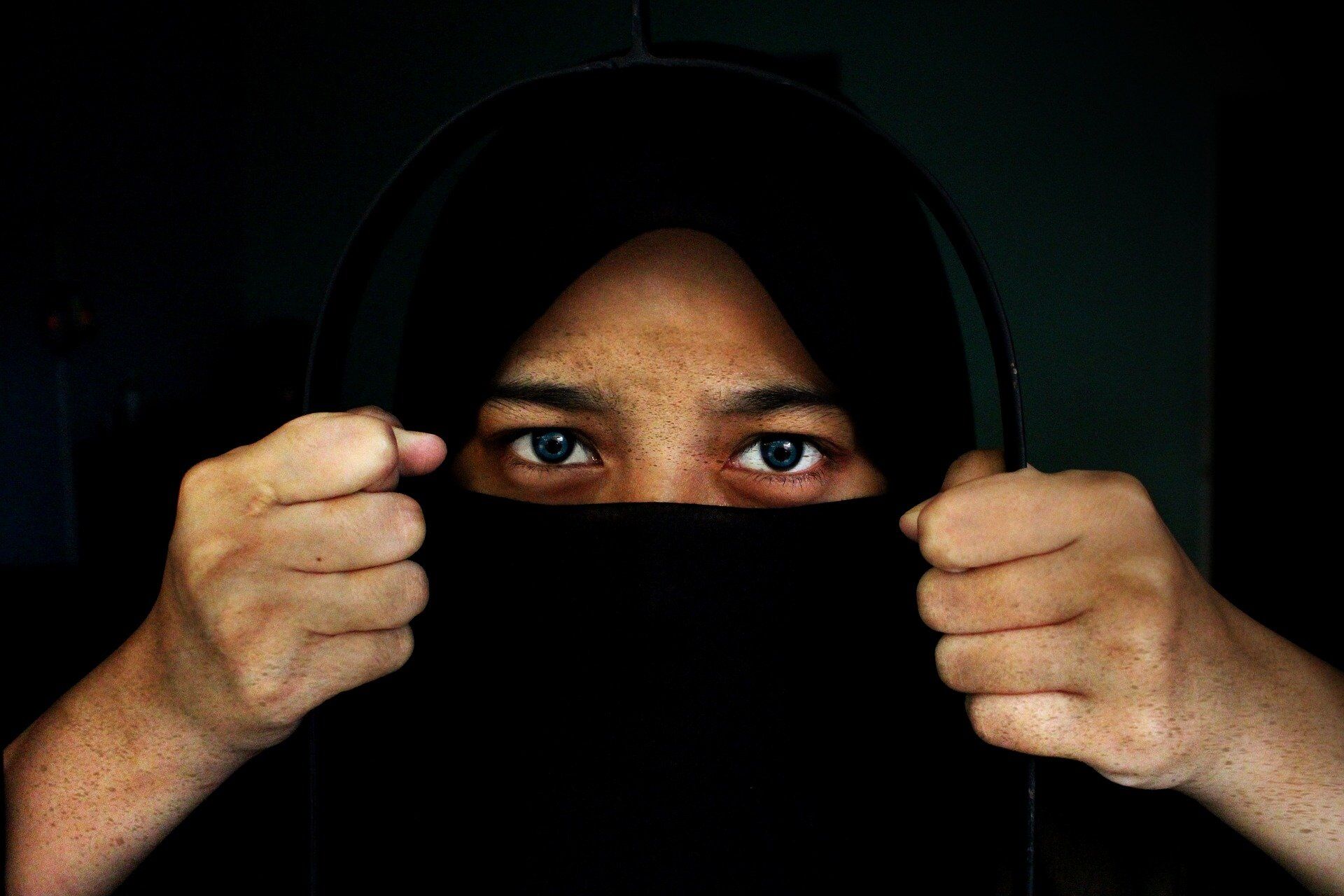Radical Daesh Women Blamed for Dozens of Killings at Al-Hol Syrian Detention Camp
15:09 GMT 20.09.2021 (Updated: 09:05 GMT 10.02.2023)

© AFP 2023 / DELIL SOULEIMAN
Subscribe
Syria’s al-Hol detention camp in the Al Hasakah district, where family members of Daesh* militants are being held, has reported scores of killings this year, according to officials. The camp has become a breeding ground for violence, putting the lives of "humanitarian workers, including camp management and staff" at risk.
Hard-line Daesh* women have been blamed for a number of killings which have taken place in al-Hol camp in north-east Syria, according to The Washington Post.
What with the volatile security situation inside the detention centre, the women are believed to have resorted to concealed guns, knives and other weapons to settle arguments and enforce strict rules on those who are not as fanatical in their adherence to Islam.
Security sweeps have failed to remedy the situation, according to officials at the camp which houses almost 62,000 detainees. Al-Hol is becoming ever more dangerous as the number of inmates who are religious fundamentalists has spiked, and camp officials have reported more than 70 violent deaths since January.

Laundry dries on a chain link fence in an area for foreign families, at Al-Hol camp in Hassakeh province, Syria.
© AP Photo / Maya Alleruzzo
More than 80 percent of those being held in the largest camp for displaced people run by the Kurdish-led Syrian Democratic Forces (SDF) are women and children - family members of Daesh fighters, Syrians, Iraqis and other foreigners from dozens of countries, detained during the collapse of its self-declared caliphate.
Syrian Democratic Forces declare total elimination of so-called caliphate and %100 territorial defeat of ISIS. On this unique day, we commemorate thousands of martyrs whose efforts made the victory possible. #SDFDefeatedISIS
— Mustafa Bali (@mustefabali) March 23, 2019
A supervisor for some of the camp guards was cited by The Washington Post as saying recent instances of violence have included troops being ambushed, rocks thrown at aid workers, and a gold shop on the edge of the communal market plundered in July. Women are often implicated in these attacks, sources claim, as they need money to buy provisions or pay smugglers to escape.
Opened in the Nineties as a small camp for displaced Iraqis, Al-Hol is reportedly not equal to the challenge of the tensions brewing within. The camp’s most radical women, predominantly Iraqis, have sought to reimpose Daesh rules on other families, the report says. Kangaroo courts have been held inside tents to mete out punishment to women who have been seen violating Daesh strictures by removing their black face coverings.
Despite calls for increased efforts at repatriation, foreign governments have done little to bring their nationals home from al-Hol camp, officials claim.
“We need these people back home. We can’t cope with them here,” a camp supervisor was cited as saying.
The Kurdish-led local authority and Arab tribes in Syria have already been sending Syrians home by the thousands, says the report, after local tribesmen promised that those who returned would be reintegrated into their home environment.
“No one else has the power to do this… Presidents rise and fall. Princes take up arms and kill each other. Only the tribes here are constants,” a tribal leader by the name of Sheikh Mohamed Turki al-Swiyan was quoted as saying.
According to officials, tribal leaders have also sponsored repatriation of those from outside their community in exchange for payments from the individuals’ families. However, some of these people are believed to have disappeared.
The report comes as Martin Griffiths, the UN's under secretary-general for humanitarian affairs, said in late August that 69 people had been murdered at the al-Hol camp since January, with around 12 attempted murders.
"Killings of and threats to women and girls in the camp increased in June and July, contributing further to a climate of fear. And the dire needs in the camp, and the extreme vulnerability and aid dependence of residents in the camp increases the risk of sexual exploitation and abuse," he said at the Security Council, adding that “humanitarian workers, including protection volunteers and camp management staff" continue to "face regular threats".
Deploring feeble efforts to repatriate nationals who remain at the camp, he said: "We must not abandon them to the violence and the hopelessness of al-Hol."
*Daesh (IS/ISIS/ISIL) is a terrorist organisation banned in Russia and other countries.



